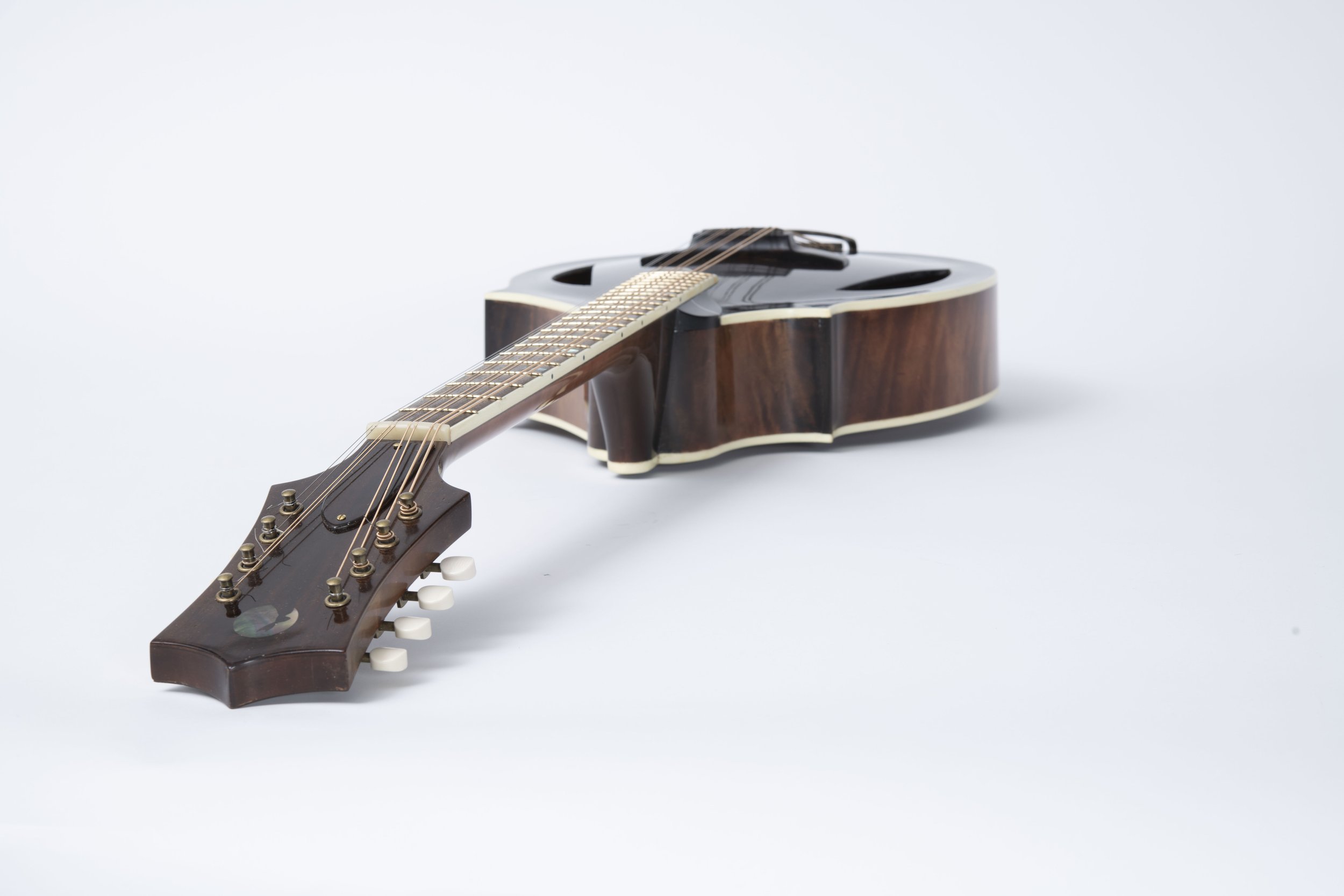
2-Point Octave Mandolin
Nut width: 38mm
Scale: 575mm
Soundboard: Western red cedar
Back, sides and neck: Tawhai
Fretboard: Puriri, 10inch radius
Frets: Jescar EVO Gold
Finish: Nitrocelulose Lacquer
Inlay: NZ Paua abalone, bone, black mother of pearl
Tuning machines: Rubner
Bridge: Custom-made with removable ebony saddle
Tailpiece: hand-cut 2mm brass
The Octave Mandolin is based on the classic Lyon and Healy mandolins of the 1920s, with a classy asymmetrical two-point body and fully hand carved back and top. A deep body provides the solid bass thump, and the trebles are clear and punchy.
Sound holes can be F or D shaped depending on your preference, and carved back and the sides can be made from NZ natives Rimu, Kauri or Tawhai, or occasionally reclaimed mahogany if I can find it. Tawhai is my recommendation though – it’s hard and closed pored like maple, with a lovely clear tone. It also shows spectacular figure. My fretboards are usually puriri. The neck is adjustable with a traditional truss rod and reinforced with carbon fibre.
Frets are evo gold for toughness, and tuning machines are by Rubner. The tailpiece is hand-cut from 2mm brass. Fretmarkers are NZ paua abalone and bone, and it’s topped off with my rabbit logo, which is hand-cut from black mother of pearl.
Prices start at NZ$3,700
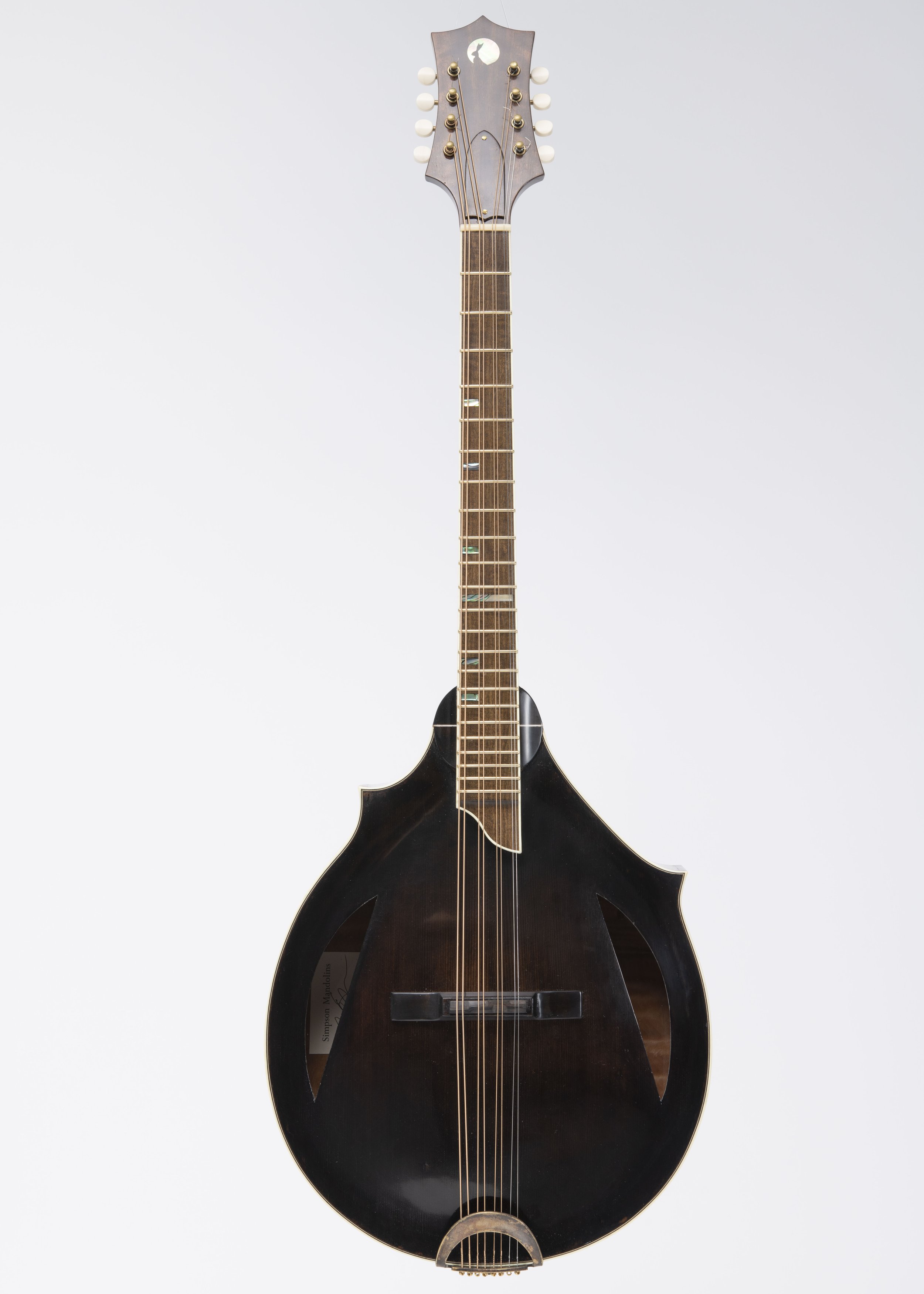




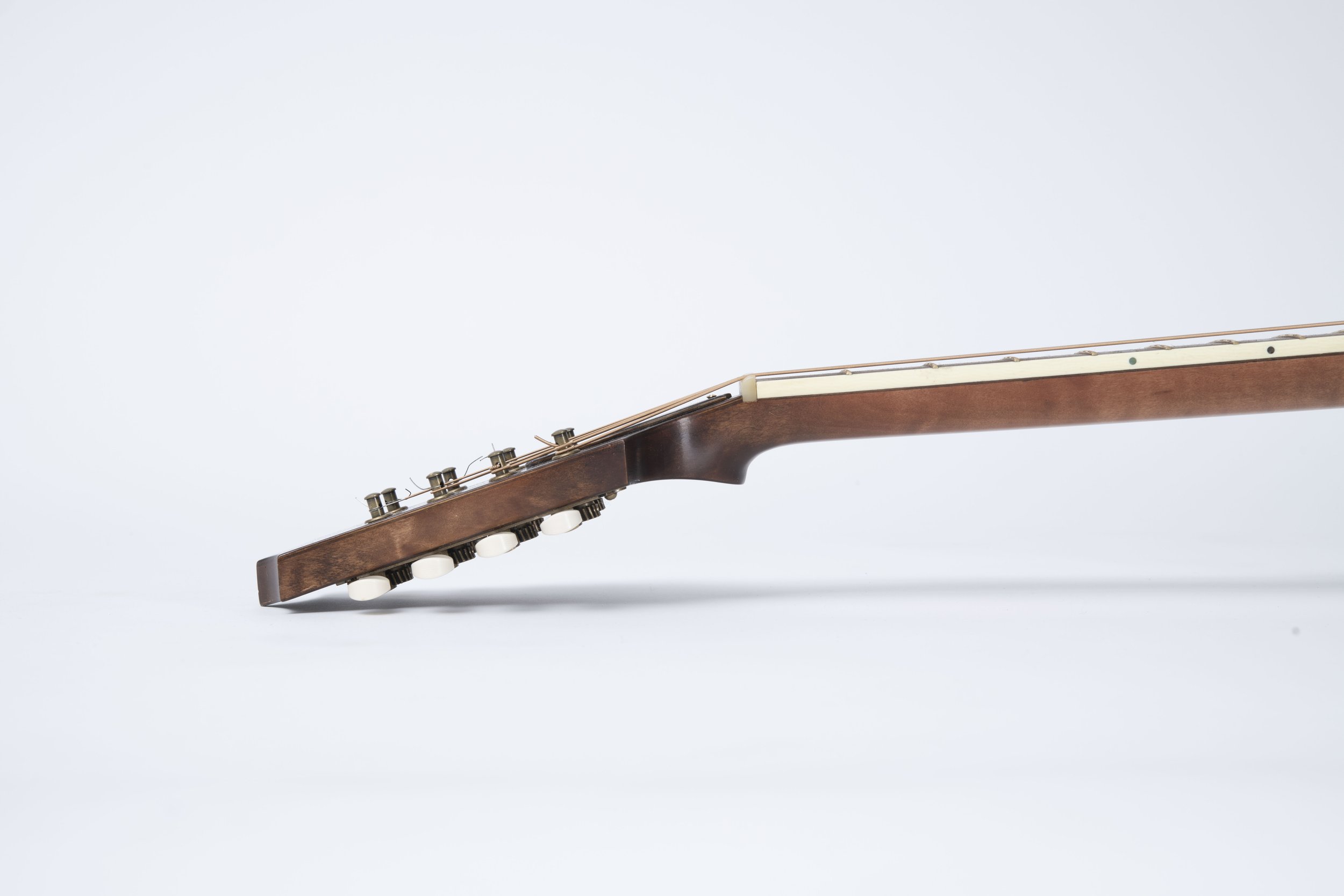
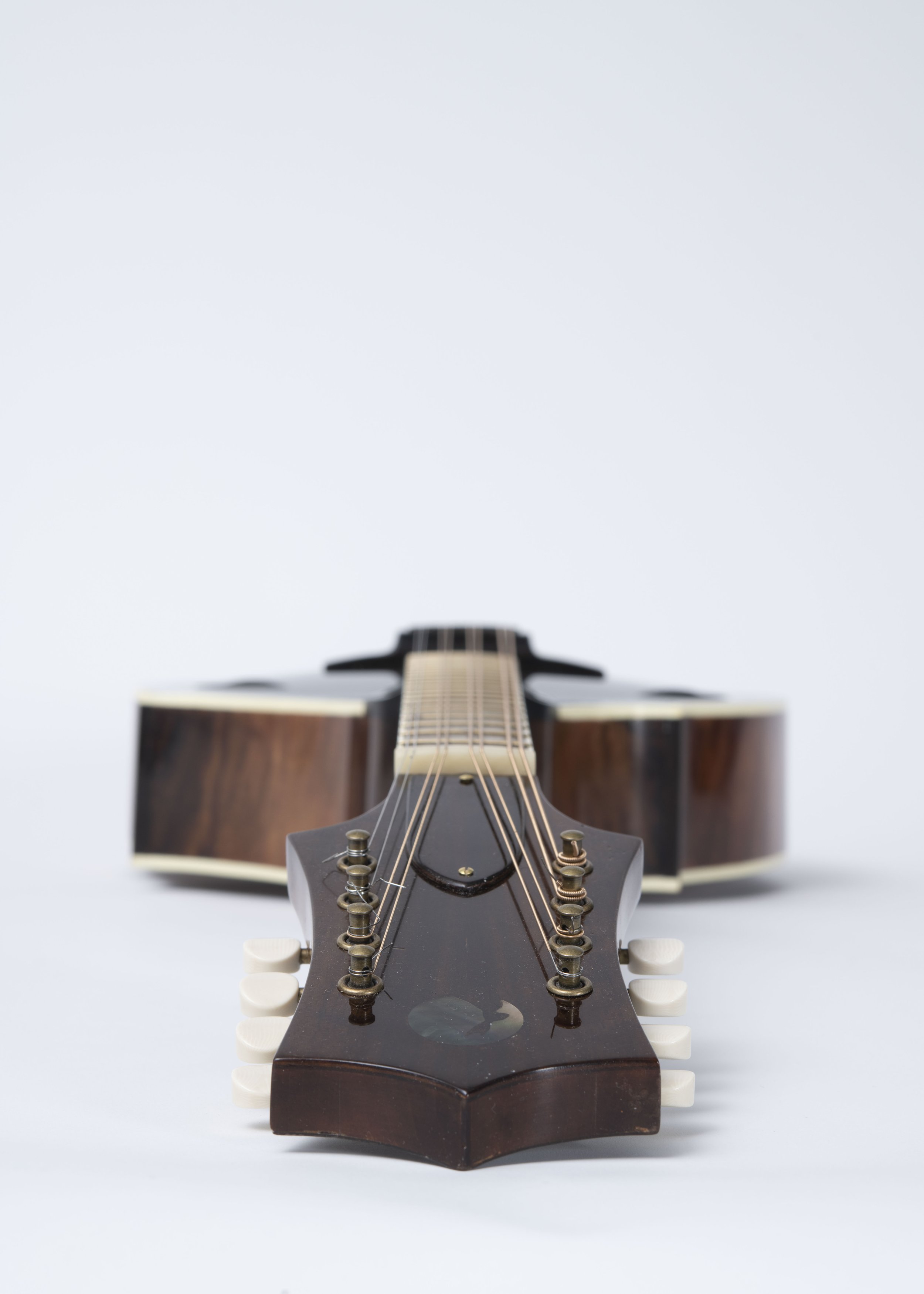




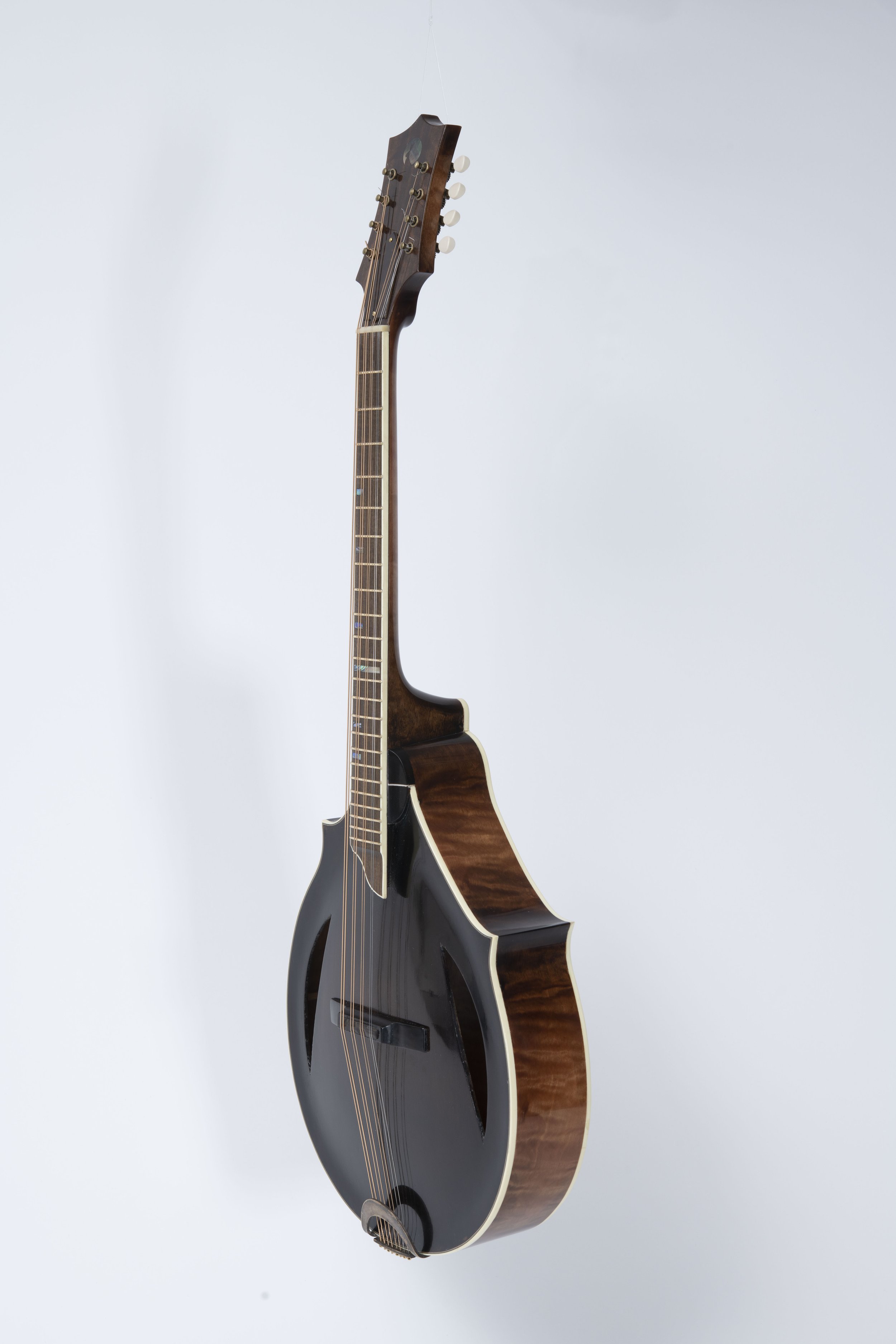
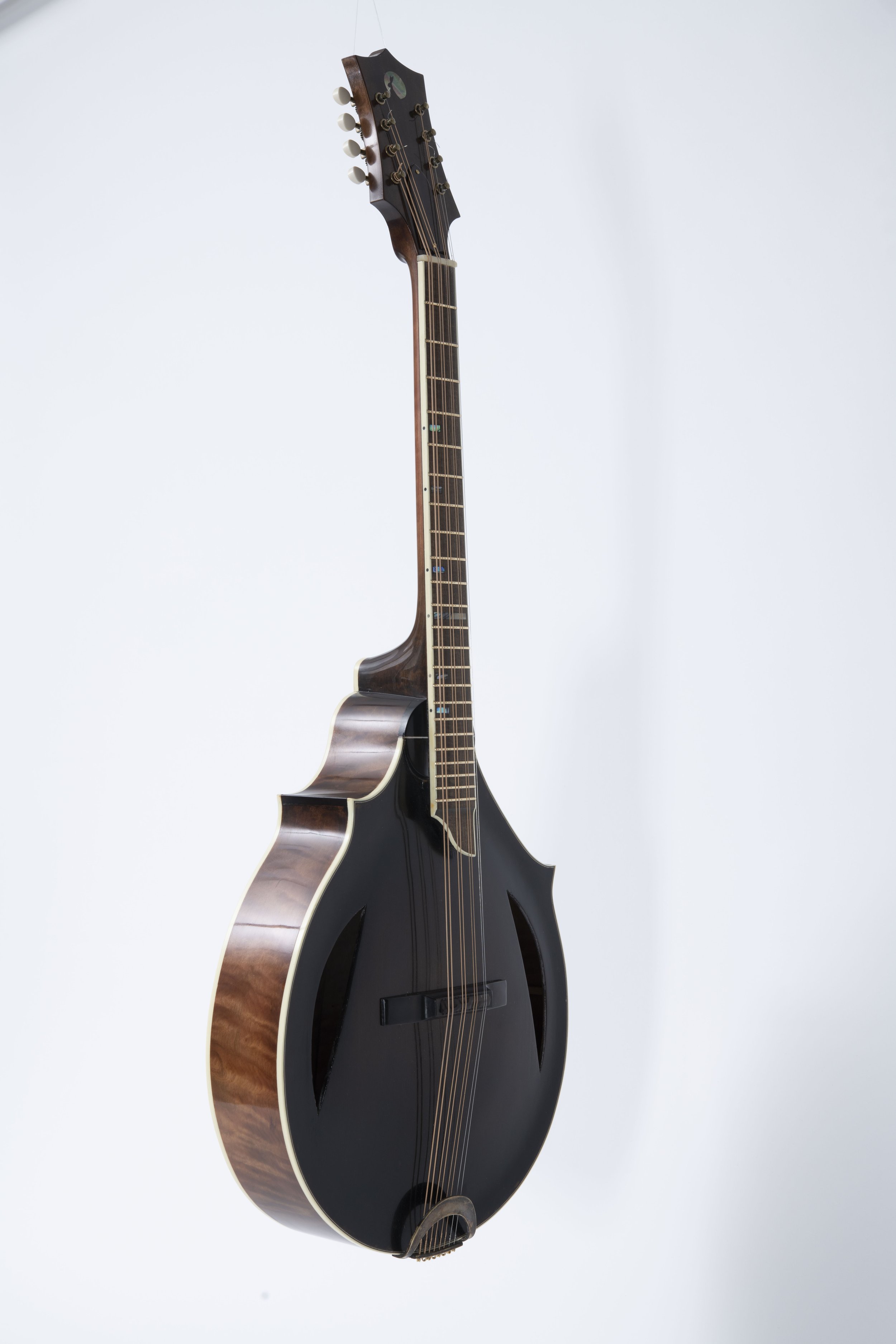
But what does it sound like…
Here’s Steve McGlone with a lovely cover of Dougie Maclean’s classic ‘Ready for the Storm’. Steve uses 050, 034, 022 and 015 gauge phosphor bronze stings, and tunes the instrument GDAD